Who were the Red Guards of the Cultural Revolution
The events we are going to tell you about could have taken place in the Ming or Qing Dynasty. They do not fit into the framework of the XX century so much that the story about them seems to be a dystopia created by a person with a sick imagination. However, they began in China, in the relatively recent 1949 and, despite their grotesqueness, they do not cause laughter.
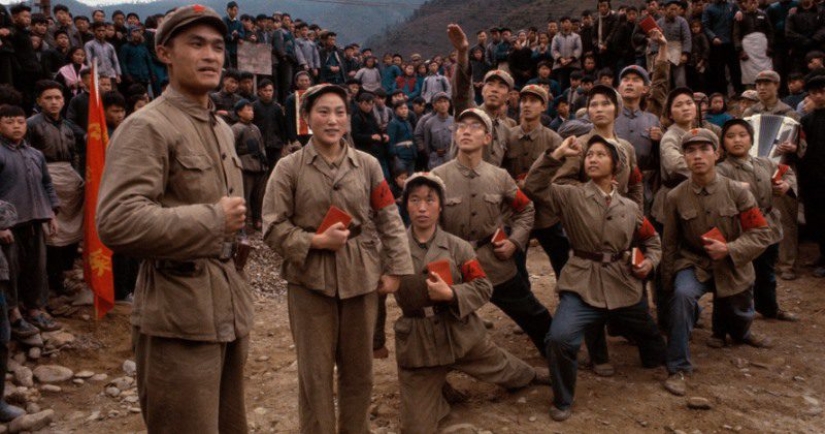
In 1949 in The Chinese Communists celebrated their victory over the Kuomintang and began to build a new, bright and progressive people's China, in which universal equality reigns and there is no place for exploitation and poverty. As is customary in this country, they got down to business with a spark and all together — they were painfully impatient to live under light communism.

Here we need to digress and tell you that the Chinese, like no other people on the planet, were ideally prepared to assimilate not only communism, but absolutely any ideology in general. The main thing is the presence of an official who will accurately set the direction and will securely grip the punishing sword in his hand.
For many thousands of years in China, the highest wisdom of life for the common man was the complete absence of his own opinion and unquestioning submission to the sovereign people. Even the smallest county official had enormous power — respect and ceremony were above common sense here.
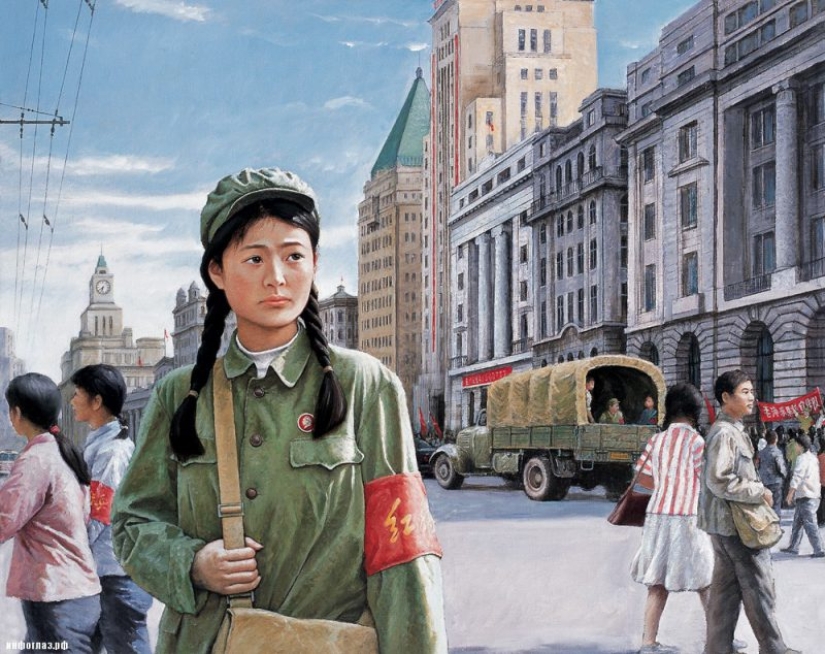
Of course, there were a lot of dissatisfied people. It was for them, with love for the cause and amazing ingenuity, that 2,400 Chinese executions were invented, including such exquisite as tying over sprouting bamboos. Such visual ways of dealing with freethinkers had a disciplining effect on the nation.
The beginning of the communist era was preceded by years of great turmoil. A hundred years of civil wars and uprisings, during which millions were laid in the ground, also had an effect on the Chinese. The common people were in constant fear and were ready to follow the instructions of any government that hit the table with a fist.
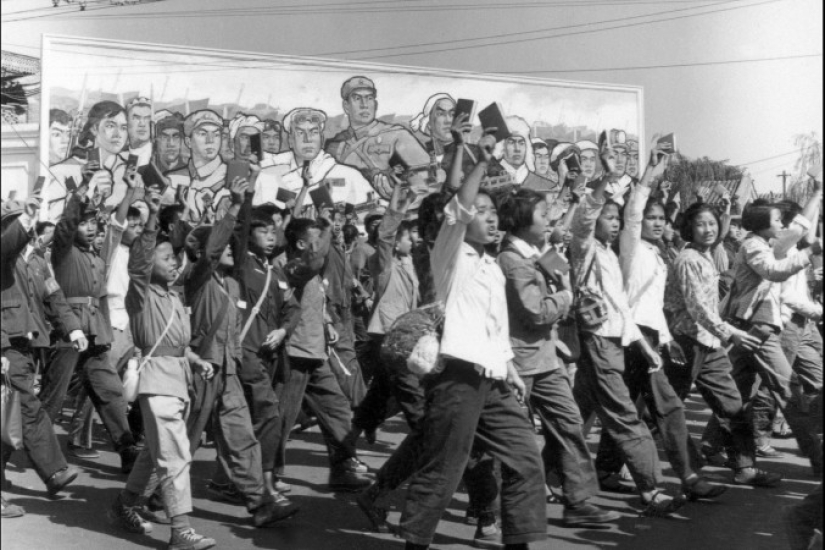
It is difficult for Europeans, who constantly signed the Magna Carta and sometimes executed monarchs, to understand how the Chinese were arranged by the middle of the XX century and why any social experiments could be put on him.
The Chinese Communist Party, hardened by the thirty-year civil war, was more like a religious sect with strict subordination of all members to the leaders. The communist was required to renounce private property, any personal desires and preferences, practically from his "I". This was called "losing blood" by the Chinese Communists.
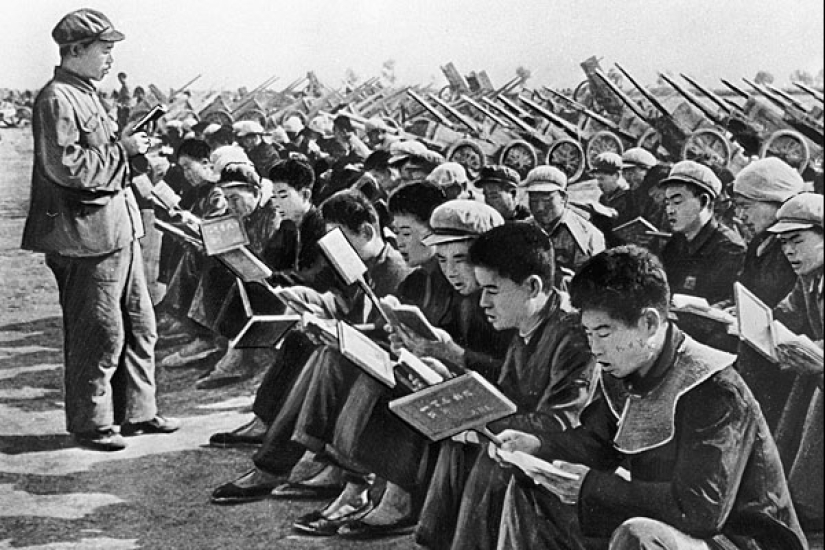
Joining the party was accompanied by initiation — a person claiming the high rank of a party member had to show steadfastness in his beliefs. To make sure that a random person, or, God forbid, a hostile element, was not trying to get into the ranks of the Communists, the candidates were subjected to various tests, including strange and frankly mocking ones.
As an example, a candidate for party membership, Comrade Yang Suijiang, who in 1935 was forced to kneel with a saucepan on his head in a public canteen. Comrade Yan, who was already 40 years old at that time, was accused of eating too greedily and had to prove by his asceticism that he was still worthy of a party ticket.
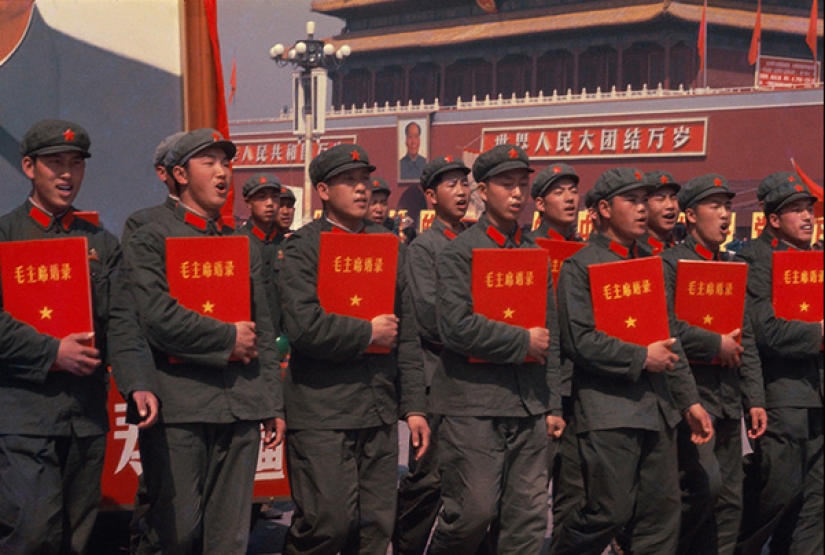
A man who proved his valor in numerous battles for the freedom of the Chinese people from oppressors could not stand such bullying and committed suicide by shooting himself with a premium weapon. The humiliation of Comrade Suijian did not end after his death. The body of the revolutionary, who had not passed the party fitness test, was buried in a public toilet. It was announced that citizen Suijiang was "not our man," but a petty bourgeois soul with perverted notions of some kind of honor, while a true Chinese communist could not have any such honor.
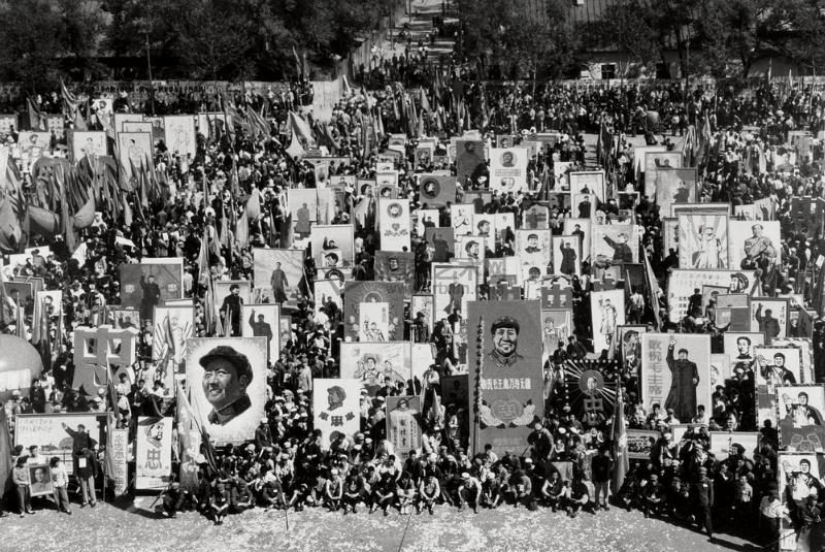
In 1950, during a large-scale 100 km march, the pregnant wife of a major party official, Wang Zhang, walked in a column on foot, while her high-ranking husband rode in an official car with a personal driver. Comrade Zhang loved his wife very much, but he could not help her in any way. The woman was a candidate for party membership and she was not entitled to any indulgences. The result of the campaign was a severe miscarriage, because of which the woman almost died. Wang Zhang was very sympathetic to his beloved, but he did not allow for a second that he could be wrong in something.
Truly, the integrity and inflexibility of these people is admirable. But it is no less worthy of regret, as it manifested itself in the form of some crazy antics and idiotic victims. We can give an example of one chairman of the district committee, who had a very sick child.
This man forbade the doctors to help the baby, because at that time a mass medical examination was taking place in the hospital by appointment. The sick child's turn came only after 6 days and he simply did not live up to his prescribed appointment. The Chairman was not even bothered by the fact that the rest of the patients were most likely healthy and for them visiting a doctor was just a routine formality. That's it — communism does not divide people into stupid and smart, poor and rich, sick and healthy.
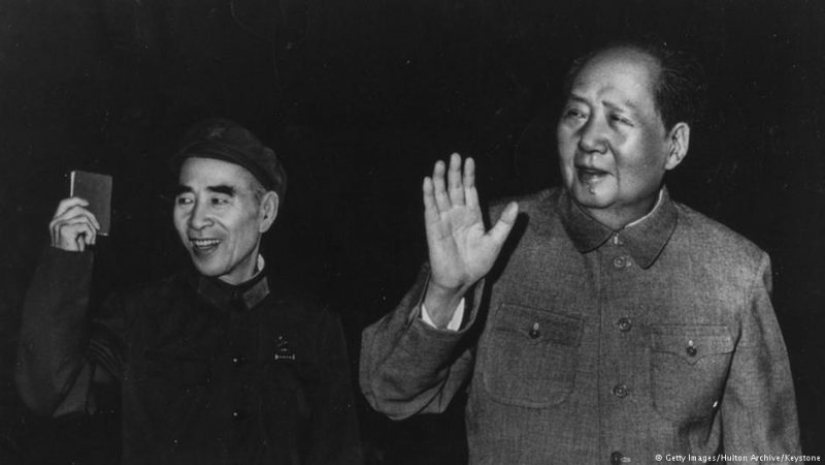
Every Chinese communist had to abandon the so-called "complacency" and his duties included constant self-criticism. Once a week, all the party members indulged in an unhealthy procedure of repentance to their colleagues, turning their soul and personal life inside out. Sins must certainly be presented, and they were not silent even about the most ridiculous trifles.
It was a little easier for ordinary people who did not aspire to the high rank of a communist. Ordinary workers, peasants and soldiers were only required to obey their superiors implicitly and talk less.
Of course, this bacchanal had to be headed by a highly extraordinary person. Such a person turned out to be Mao Zedong, a man with a steel communist temper, a warrior, a philosopher, a wonderful actor and the owner of a lot of other real and fictional propaganda virtues.
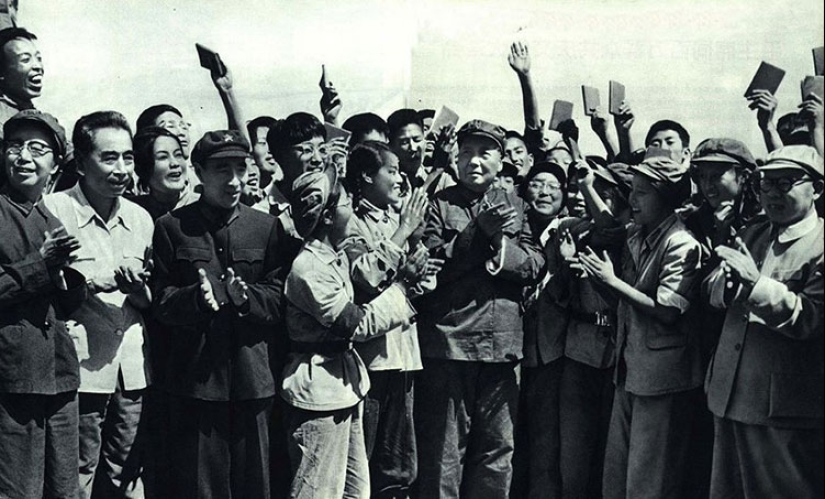
Mao was able to amaze even the Chinese who were used to everything with his actions, being a wonderful speaker, he was able to convince and infect people with ideas. Being an educated and very well-read man, he mixed in his speeches the ideas of Confucianism understandable to the Chinese with the theories of the European classics of Marxism, generously diluting this mess with his own reflections.
From such works, the most intellectually gifted listeners were perplexed, who after a few speeches began to treat the helmsman as the supreme being. Away with doubts — can a mere mortal twist like that?

In 1943, Mao Zedong became chairman of the Communist Party, which made him the rightful master of the country after the victory of the revolution in 1949. But we must pay tribute to the Chinese leader — he did not take the reins of power completely into his own hands, as Stalin did. Mao's associates had the right to vote and there was no talk of a classical dictatorship. Despite this, life in the People's Republic of China was still not boring at all.
Keenly aware of the world around him and especially well versed in people, Mao Zedong decided in 1956 to change priorities in the country and announced that the time of self-sacrifice and strict revolutionary control had come to an end. "As a hundred flowers bloom, let a hundred schools bloom" — so the CPC leader expressed himself allegorically, meaning that now everyone had the right to vote.
Even such unheard-of liberties as criticism of communists were allowed, while mass debates were welcomed, necessarily with the participation of scientific and creative intelligentsia. At the same time, the most liberal party figures of the country, such as Deng Xiaoping, Liu Shaoqi and Zhou Enlai.
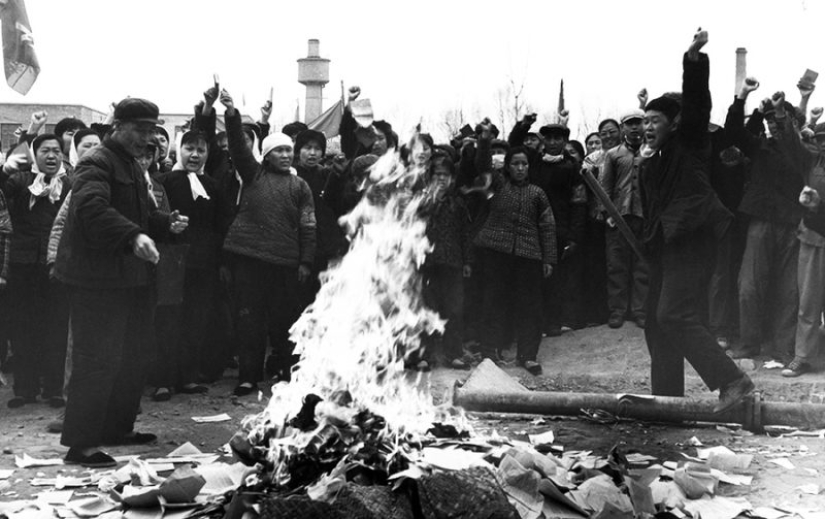
For a whole year in the press, poets, writers, artists, historians, party members themselves and even ordinary people practiced the hitherto unknown art of criticism of the leadership. Critical articles, memories of the tragic mistakes of the party's course and numerous excesses on the ground were held in high esteem. Some people have gone so far apart that they have allowed themselves hints that things are not so bad in the rotten imperialist West.
A year later, these "blooming flowers" began to come with arrests. All those who rushed to follow Comrade Mao's instructions with true Chinese zeal and burst into criticism were very quickly tied up. In less than half a year, 520 thousand people were arrested, some of whom were executed, and some were sent to re—education labor camps.
The number of suicides in the country has increased incredibly — many could not live in horror and wait for the knock on the door and took their own lives. At this time, pleased with his cunning, Mao told from the pages of newspapers about how smart he was — he let the counterrevolutionary elements stick their noses out of smelly holes and caught them like stupid puppies.
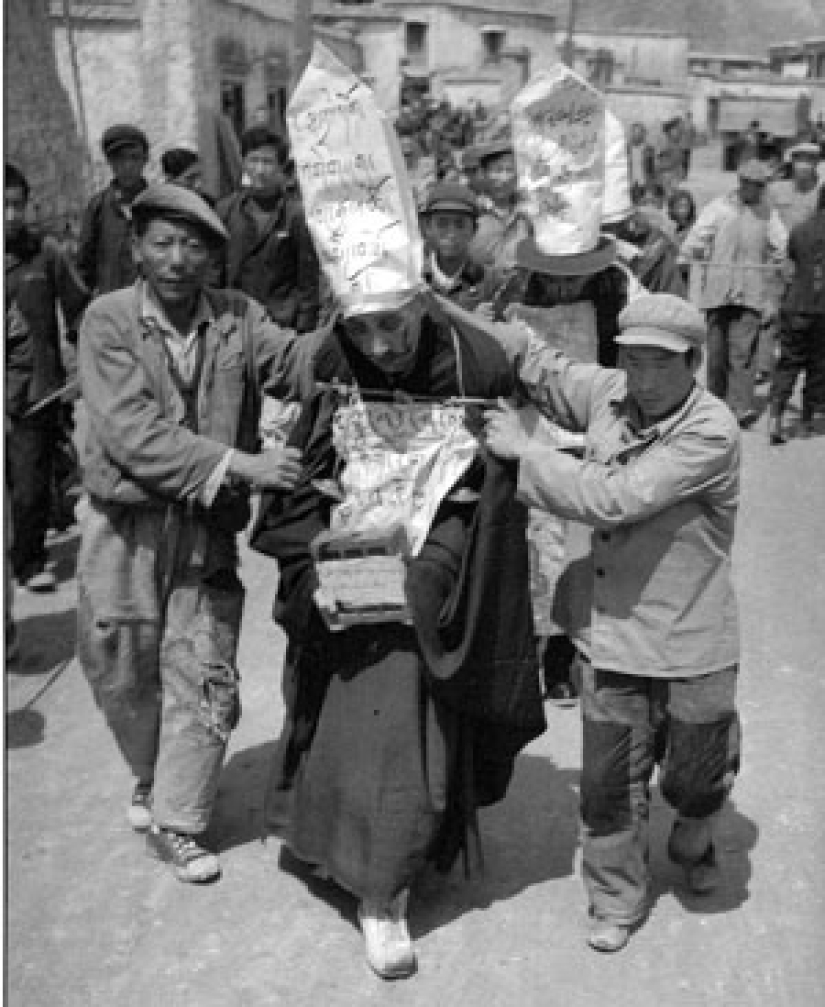
After a period of "blossoming of flowers", during which the most advanced intelligentsia was exterminated, the Chinese firmly learned that Comrade Mao should not be criticized. In this regard, whatever the leader said from the rostrum was now accepted without the slightest analysis as an immutable truth.
For several decades of continuous war and devastation, the Chinese peasantry did not know hunger. This is primarily due to the mentality of rural residents. For thousands of years, the love of the land has been cultivated here and no shock could prevent the Chinese from planting rice. In the event that the family was forced to move, fruit trees were dug out and then planted in a new place.
In 1950, Mao Zedong embarked on a grandiose reform of agriculture. The whole land was declared the property of the people and equally divided among the peasants. But residents of Chinese villages still did not become owners of their allotments. They were in the unclear position of either farmhands or tenants, as they received only a small share of the harvest.
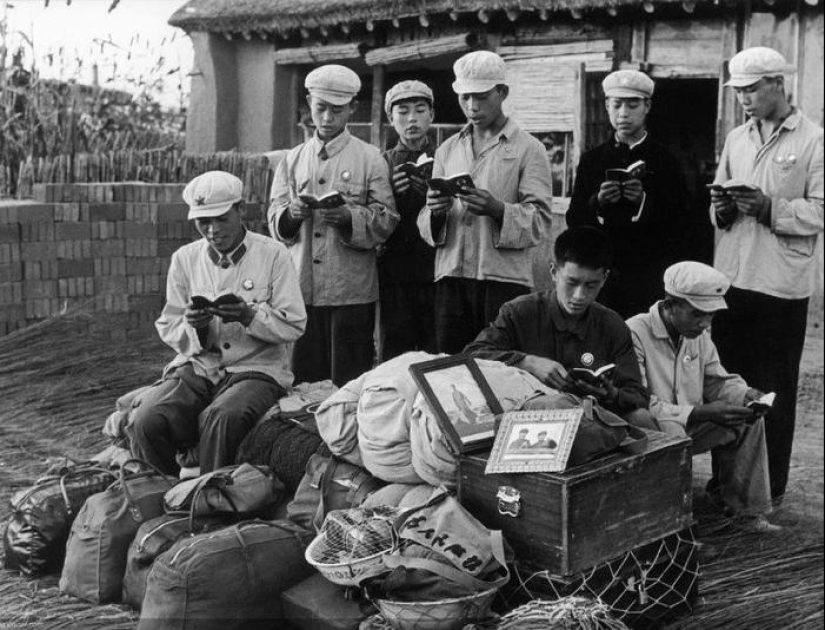
The 600-million-strong peasantry of China more or less coped with the provision of the country, despite the fact that the products were on the cards, no one was starving. When distributing food, the position of a person in the party played an important role — high-ranking communists had more opportunities to eat well, and, for example, the former bourgeoisie received minimal rations.
But by the end of the 50s, Mao decided to make the country an industrial giant and announced a "Big Leap." The work of a peasant, from revered, turned, thanks to propaganda, into insignificant, and the leader called the cooking of steel the main priority.
This is how the famous Chinese writer Yun Zhang recalls this period in her book "Wild Swans". Everyone melted steel, including the peasants. One hundred million workers in the agricultural sector were sent to work in metallurgy and the fields were in desolation.
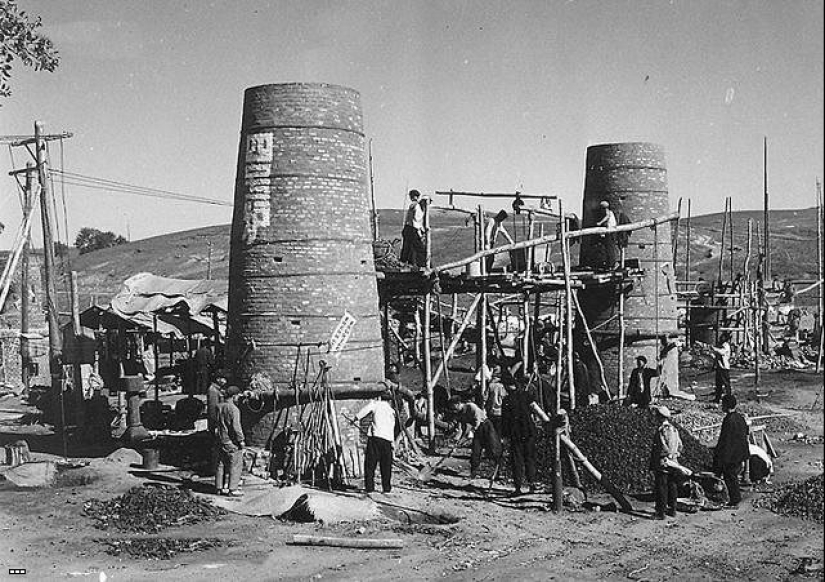
The metal produced in artisanal conditions was cast iron of the lowest quality and, with rare exceptions, was unsuitable for use in industry. The people themselves called their products — "nyushi geda", which means cow cakes.
Food shortages began to be felt in the country, but instead of admitting his mistake and returning the peasants to the land, Mao began experimenting with crops, ordering the fields to be sown 5 times thicker, and the seeds to be buried 2 times deeper. This method, once proposed by the Soviet pseudoscientist Lysenko, almost completely ruined the harvest.
And again, no one began to learn from mistakes. The culprits of the Chinese people's troubles were found, including flies, mosquitoes, sparrows and rats. Sparrows encroaching on crops were declared the number one problem and their party decided to eradicate them completely.
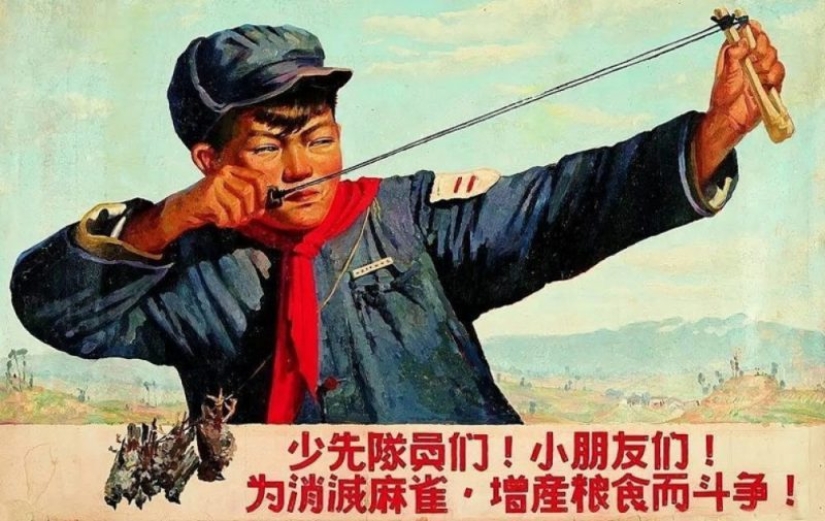
The Chinese rushed to destroy the sparrows, armed with rattles, slingshots and drums. The killed sparrows had to be handed over to offices specially opened for this purpose in accordance with the standards named by the party. Those who could not provide the necessary efficiency were subjected to various punishments and could generally be called enemies of the revolution, which entailed the saddest consequences.
Having eradicated the sparrows, the Chinese received an invasion of locusts, which ate the entire crop on the vine. A famine began in the country, which killed 30 million people. There was such a phenomenon as cannibalism in the country — children were afraid to let out on the street alone, as they often disappeared without a trace.
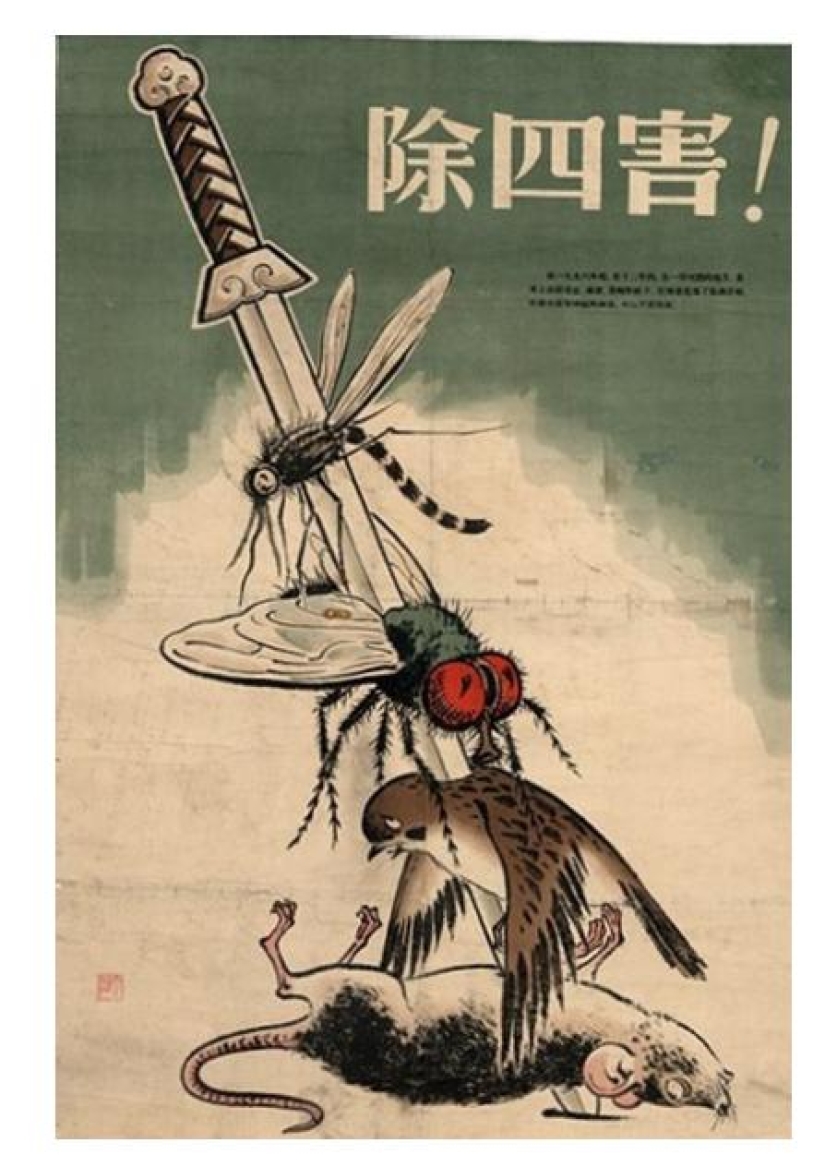
Seeing the plight of his people, the Chinese leader realized that something needed to be changed urgently. The mass smelting of steel was stopped, the peasants were returned to their land, and in Mongolia bought large batches of sparrows to restore the population of these birds.
Deng Xiaoping and Liu Shaoqi were engaged in the country's economy, and Mao practically did not interfere in the country's recovery process after the crisis for four years. But in 1965, his active nature came up with a new "trick" — the Cultural Revolution. The helmsman of the Chinese people decided to return revolutionary values to the masses and do this by destroying bourgeois phenomena alien to the people.
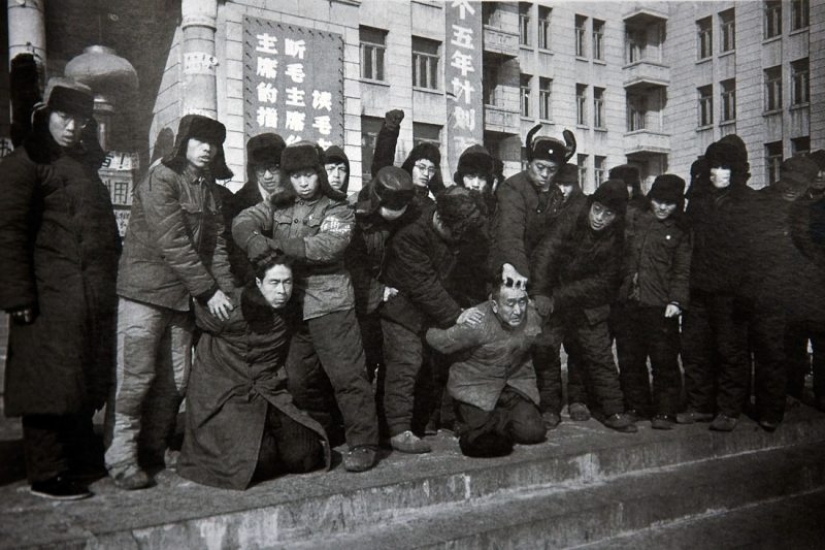
Many objects, such as books, sculptures, paintings and vases, were declared pernicious remnants of the bourgeois past and they began to be mercilessly destroyed. The main driving force of the Cultural Revolution was the Red Guards, whose ranks included schoolchildren and students, as well as Zaofani from among the workers. These young people were made guardians of the Cultural Revolution and given enormous powers.
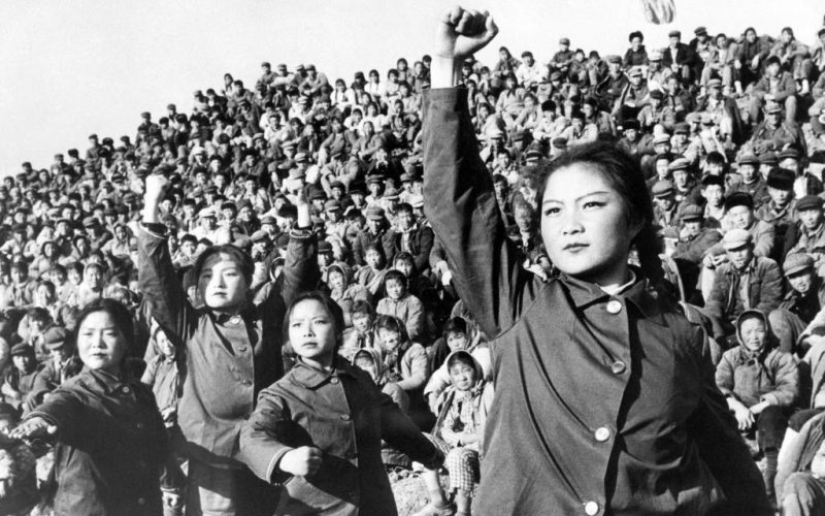
To understand how far things have gone, you need to read a quote from one of the party leaders of China at that time — Xie Fuzhi:
Intellectuals, school teachers, Buddhist priests and people who dressed well and looked after themselves were immediately enrolled in the bourgeoisie. Some party members who were distinguished by liberal views and did not agree with some of the ideas of the great Mao also got here.
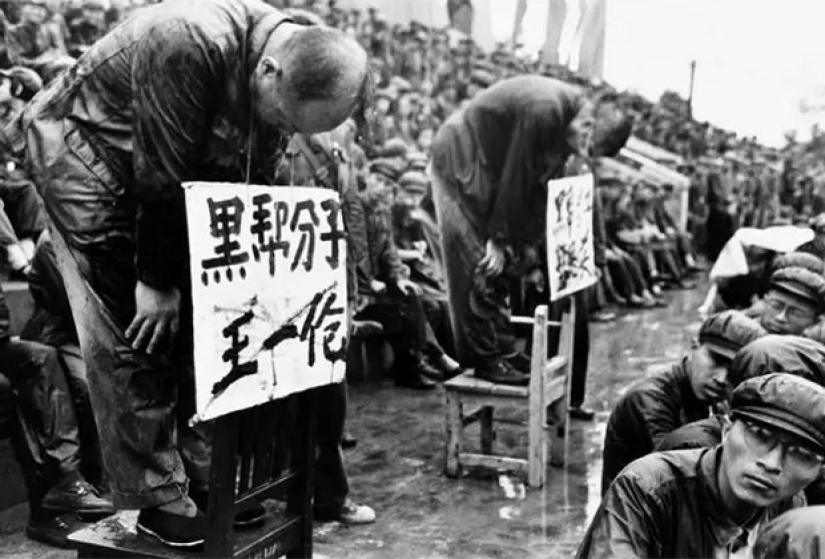
Gangs of young people, aged from 12 to 19, wandered around Chinese cities and villages and caught enemies. Those who did not like them were beaten with sticks, forced to kneel on broken glass and sometimes killed. We still need to thank Mao Zedong for not daring to give the Red Guards weapons, so there were not too many deaths.
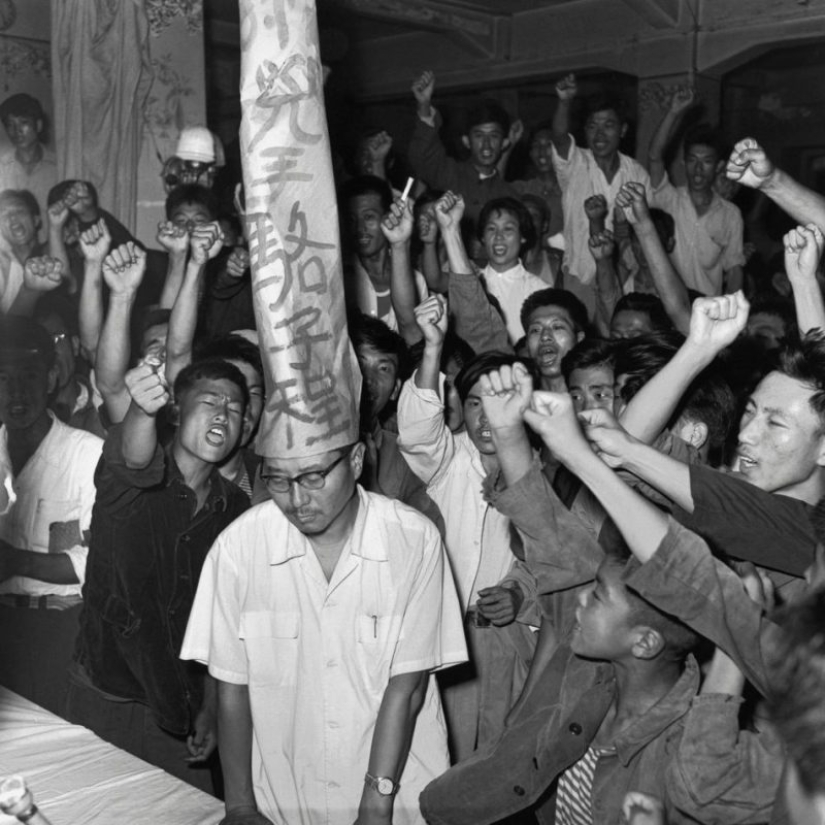
Various tortures were also practiced, which are so popular in China. One of the methods of influencing the class enemy was the so-called "tiger bench". A person was seated on a narrow bench and forced to stretch out his legs in front of him. The hips were tied to a bench, and the back was tied to a post dug in behind. After that, bricks or boards were placed under the heels, ensuring that the legs broke in the knee or hip joints. After such torture, a person died from pain shock or remained permanently disabled.
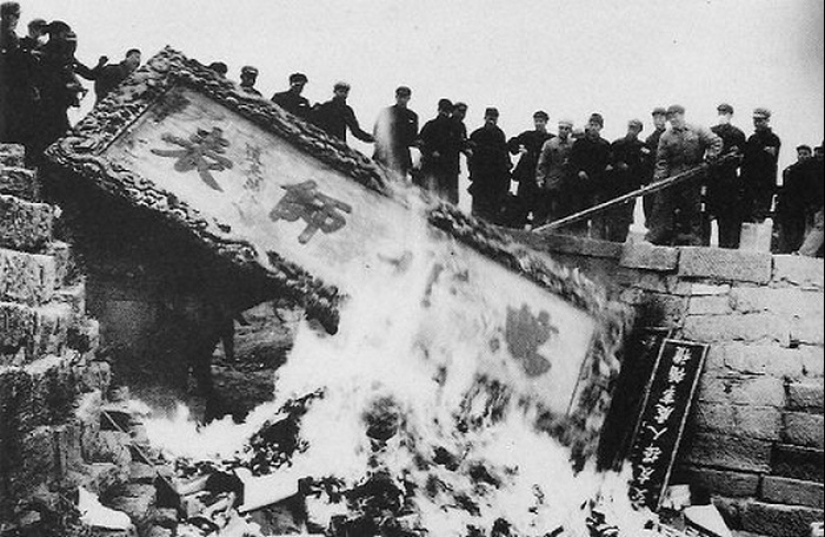
The cultural revolution continued until Comrade Mao's death in 1976. But it began to be curtailed back in 1969, after the eviction of the bourgeoisie to the countryside. According to the lists compiled by schoolchildren and students from the ranks of the Red Guards, unreliable people were arrested in major cities of China and evicted to the most remote villages to work in the fields. The victims of such displacement were several million teachers, artists, scientists and just random people who somehow did not like the revolutionary youth.
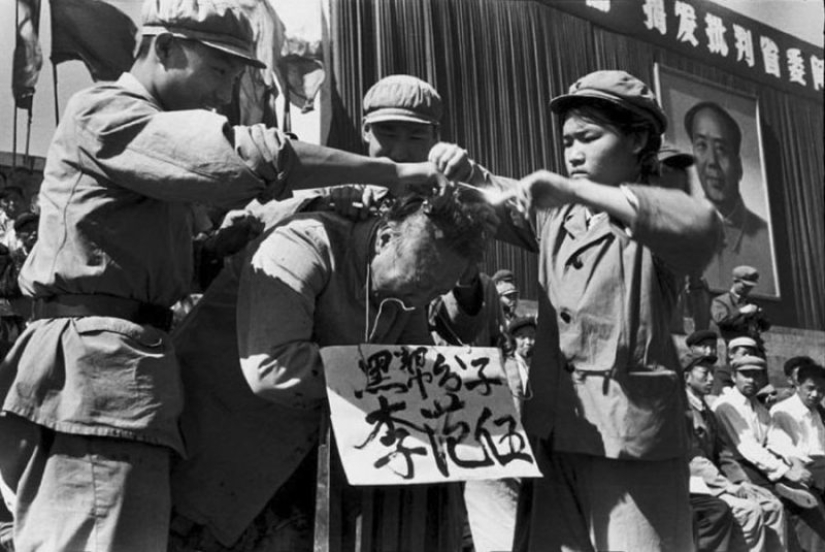
Then they began to gradually disband the detachments of Red Guards and Zaofans, sending some back to classrooms, and others to the machines of enterprises. The fight against the remnants moved to the pages of newspapers, which were flooded with many articles about the harm of grace and beauty. Lawns, bouquets and interior decorations were condemned, chess and religions were banned. Of the dances, only those that depicted love for Mao Zedong. "The Dance of Love for the leader" is one of the few permitted choreographic masterpieces, consisted of jumping and stamping on the stage with waving red quotes of the leader over his head.
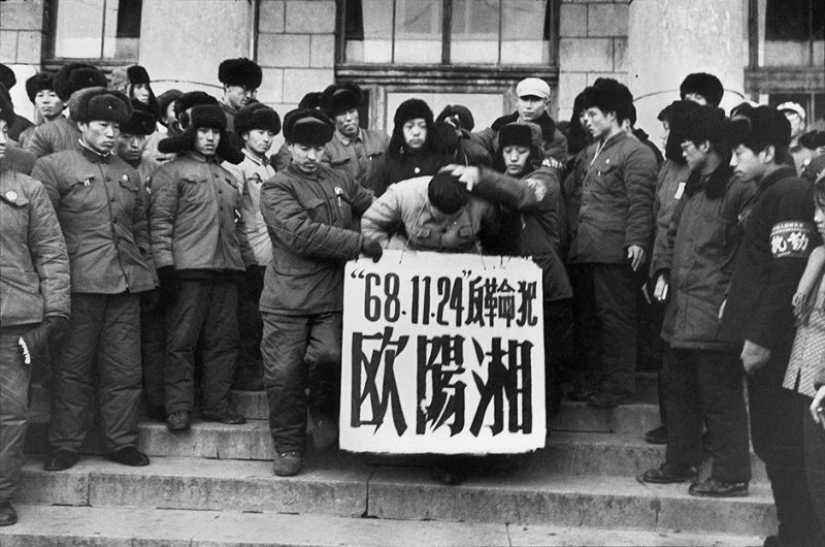
In 1976, the great Mao died and everything went according to a purely Chinese scenario. There was no condemnation of the cult of personality and revision of historical events — everything remained as it is. The new China received private property and, gradually, many different freedoms. Tourism appeared in the country and the development of science and technology began. Today, China is one of the world's leading economies and is developing incredibly fast and dynamically. But, according to the age-old tradition of patience and reverence, it is not customary to talk about the victims of revolutions in the country and, most likely, this issue will not be raised in the future.
Recent articles

It's high time to admit that this whole hipster idea has gone too far. The concept has become so popular that even restaurants have ...

There is a perception that people only use 10% of their brain potential. But the heroes of our review, apparently, found a way to ...

New Year's is a time to surprise and delight loved ones not only with gifts but also with a unique presentation of the holiday ...